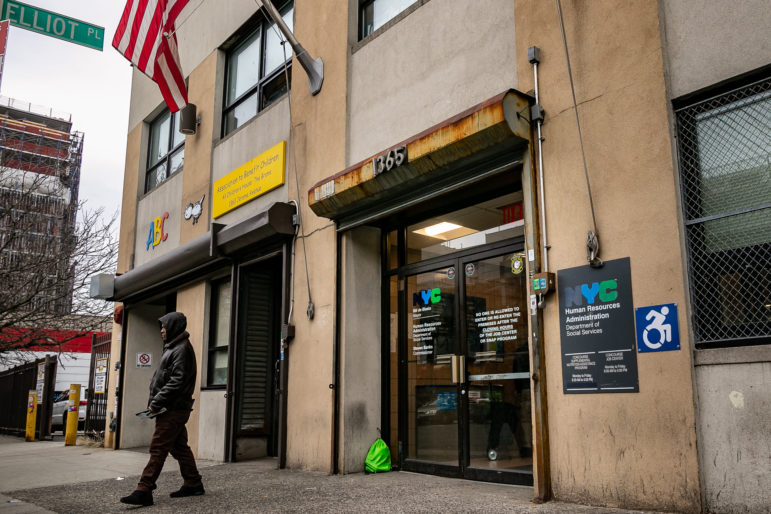‘The trauma and isolation of the pandemic has taken its toll. In The Bronx, we experienced disproportionately high numbers of COVID-19 cases, hospitalizations, and deaths. Until the mental health needs of our participants are addressed, it is difficult—if not impossible—for them to secure and retain employment.’

Adi Talwar
The city’s HRA Job Center on Jerome Avenue in The Bronx.The latest jobs report debunks the theory that recent labor shortages have been caused by expanded unemployment benefits—there was no surge in hiring this fall when additional benefits ended. So what could explain this trend, despite record job openings?
For many in low-income communities like The Bronx, increased mental health concerns in the wake of the pandemic are making it difficult to get back to work. In order to better help New Yorkers secure and retain employment, workforce development programs should integrate mental health services to address these needs.
At my organization, BronxWorks, a nonprofit that provides wraparound social services to over 60,000 Bronx residents, participants in our workforce development programs experience a myriad of barriers to entering or reentering the job market, such as a lack of childcare. But one of the most common challenges among our participants in recent months is an increase in mental health concerns.
The trauma and isolation of the pandemic has taken its toll. In The Bronx, we experienced disproportionately high numbers of COVID-19 cases, hospitalizations, and deaths. Until the mental health needs of our participants are addressed, it is difficult—if not impossible—for them to secure and retain employment.
 CityViews are readers’ opinions, not those of City Limits. Add your voice today!
CityViews are readers’ opinions, not those of City Limits. Add your voice today!
A report from the New York State Health Foundation illustrates the mental health impact, especially in diverse and historically under-resourced communities like The Bronx. During the pandemic, New Yorkers of color experienced the highest rates of poor mental health, with 42 percent of Hispanic and 39 percent of Black New Yorkers reporting symptoms of anxiety or depression. Low-income New Yorkers and young adults ages 18 to 34 years reported the highest rates of poor mental health.
Stories from our workforce programs reinforce these findings. This fall, our EXCEL Program, which offers High School Equivalency and employment support for young adults, noted that approximately half of participants expressed mental health needs during intake screenings. For example, one 18-year-old enrolled in the program to advance her education and career goals, but shared with our staff member that her mental health concerns make it difficult to focus and succeed.
At BronxWorks, our case workers do their best to address the holistic needs of participants through assessments and referrals, but there are limits to what they can do to help. To best support New Yorkers, all workforce development programs should include funding to embed qualified mental health professionals, like social workers, within the programs.
Addressing depression, anxiety, and other mental health concerns will go a long way towards helping more New Yorkers secure and retain employment, yet the issue is under-recognized and under-addressed, especially in low-income communities like The Bronx. At BronxWorks, we need additional funding to hire mental health professionals within our workforce programs to adequately address what is clearly a growing need among our 60,000 participants.
In order to help New Yorkers get back to work, government and private funders should ensure mental health services and funding are integrated into workforce programs to set participants up for success.
Eileen Torres is the executive director of BronxWorks








